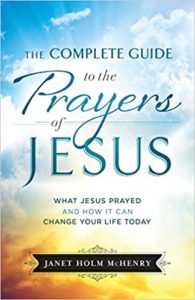 When I walk with people through their times of brokenness, we often talk about Proverbs 4:23: “Guard your heart for the heart is the wellspring of life.” No one wants a broken heart, but life can be painful. Relationships can be painful. So how do we guard our hearts when trouble overwhelms us? What does this verse mean?
When I walk with people through their times of brokenness, we often talk about Proverbs 4:23: “Guard your heart for the heart is the wellspring of life.” No one wants a broken heart, but life can be painful. Relationships can be painful. So how do we guard our hearts when trouble overwhelms us? What does this verse mean?
Sometimes to protect our hearts we bury them in superficial, mind numbing distractions or try to escape into worlds created by our own devices. We may build a crust around them so nothing can attack them or cause more hurt. We may think we are “guarding” our hearts by hardening them against the pain, against others who try to get close, and anything threatening to break open the outer shell of protection. Unfortunately, however, by taking these approaches, we may create a gateway for bitterness to grow, a bitterness that will eat away at our hearts and cause more havoc throughout our lives.
Other forces attack our hearts also—not just the pain of our circumstances. And these can be more subtle. When we go through a rough time in life, we are vulnerable to the noise of our culture—the pressures coming from society’s norms and values –and the opinions of other people. We hear them again and again. More and more, their answers begin to sound plausible and logical; they may seem the only way out. Our minds and hearts become clouded, and the whispers of God are unable to penetrate the noise and confusion of outside pressures. It feels easier to listen to those with the loudest voices and go with the culture around us.
Thankfully, when God cautions us to guard our hearts, He also tells us how to do it. In the verses directly before Proverbs 4:23, Proverbs 4:20-22 instructs us how to guard our hearts. “My son, pay attention to what I say; listen closely to my words. Do not let them out of your sight, keep them within your heart; for they are life to those who find them and health to a man’s whole body.” Equally important, the end of Proverbs 4:23 tells us exactly why to guard our hearts. “Guard your heart for the heart is the wellspring of life.”
When I picture the heart being the wellspring of life, I picture a spring of living water gushing up inside the heart, allowing God’s love, peace, and grace to overflow, washing through the person’s spirit and overflowing onto those around him. The heart is the way God connects with us. It’s the way He brings life to us.
Guarding your heart means pulling your heart away from the forces that have the potential to cause it harm, and trusting your heart to God. It means guarding your heart from the toxicities of the culture and the environment around you that would poison that beautiful life-giving wellspring of life coming from God. It means listening to God’s words to guard your heart from the arrows of Satan who would cause bitterness to grow and deceive you onto wrong paths. Instead of trusting your heart to the deceptive words and persuasions of those who might mislead or hurt you, scripture instructs you to guard your heart by putting it in the hands of the only One you can completely trust, and that is our loving and faithful Father God.
In Jeremiah, the prophet continually addressed a people who looked to the gods of other cultures, rather than the living God they’d known, to fulfill their needs and give them the pleasures they desired. God told Jeremiah to call out to them with the truth, to instruct them to listen to Him, but their hearts were stubborn, refusing to listen to God. They allowed the toxicity of the cultures around them to infect their hearts so they were no longer able to hear God and the things He wanted to tell them. As a result of their failure to “guard their hearts,” disaster came upon them.
When we “are still and know that He is God,” we can step out of the undercurrent of societal pressure and listen to God’s voice. What does He want us to do? Where does He want to lead us? Can we quiet our hearts long enough to hear? Are we allowing that spring of Living Water to bring His refreshing Spirit to wash through the clamor of confusion and stabs of pain so we can hear what He wants to say to us?
When we allow God’s Living Water to flow through our hearts, our hearts can remain soft and malleable to God’s touch. Sometimes that softening brings tears as we submit to the will of One whose ways are above our own, who takes us on paths that we can’t control or understand. Our hearts are breaking; we are out of control; we no longer know what’s ahead. But when our hearts break in the stillness of God’s presence, Jesus pours His living water into the gaping holes to wash through the debris and residue from past hurts and disappointments to renew us. When our tears join with His Living Water, our souls can breathe in the life He wants to give us. We can walk the path He sets before us, unafraid of where it will lead because our eyes are on our Savior and Lord, our ears are tuned to His voice, and our hearts are alive with the wellspring of life.
* * *
If you are fighting for your marriage and need to know how to guard your heart in the process, check out my new book, Fighting for Your Marriage while Separated.















